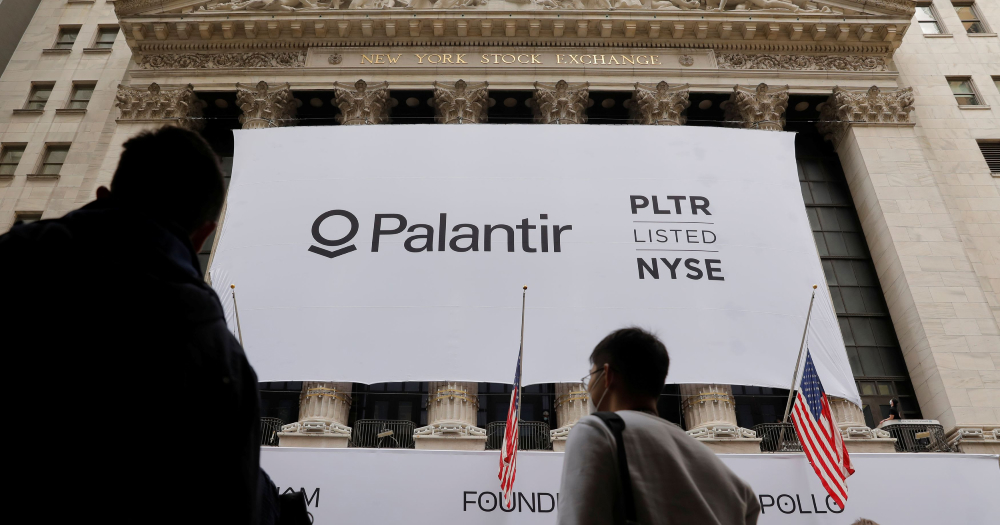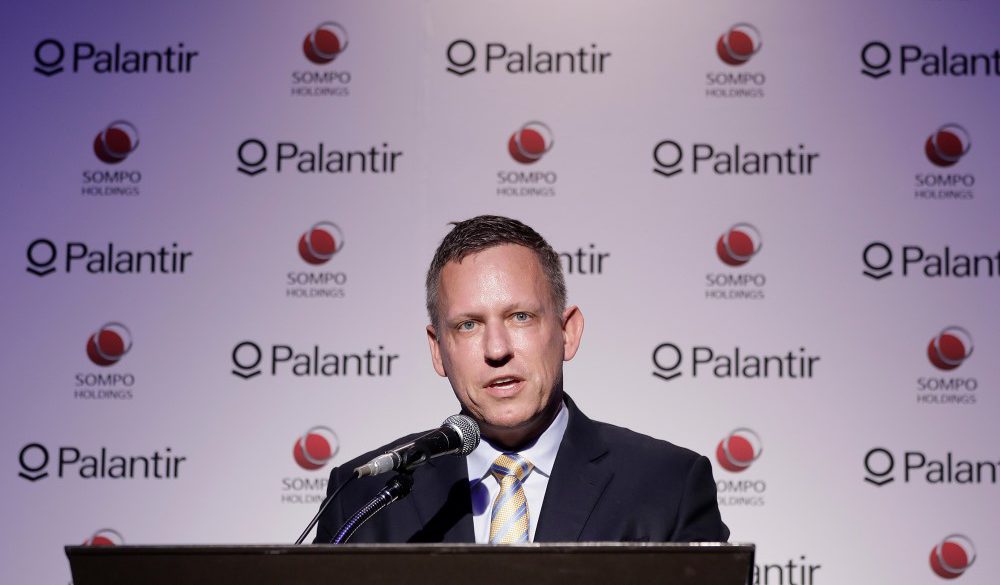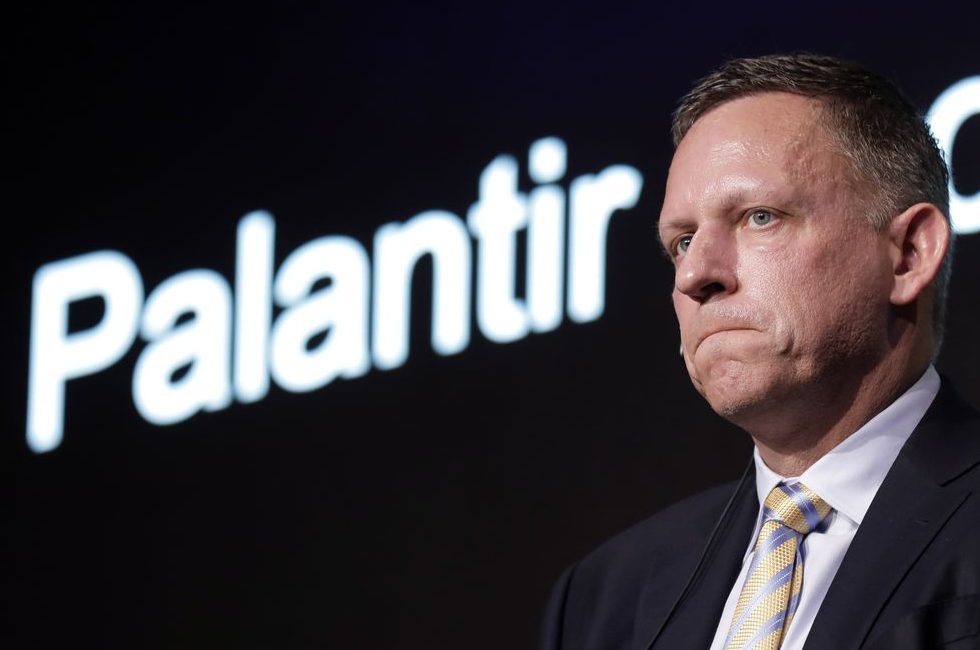The Rise of Palantir, Silicon Valley’s Most Secretive Unicorn
Named for a mysterious black orb that a dark wizard adopts to communicate with a giant disembodied flaming eye in J.R.R. Tolkien’s genuine masterpiece – “The Lord of the Rings” trilogy, Palantir Technologies Inc., or Palantir for short, has long been one of Silicon Valley’s most secretive unicorns. Founded in 2003 by billionaire tech investor Peter Thiel with financial support from the Central Intelligence Agency (CIA) and having stayed private far longer than many observers thought it would, the big data and surveillance company is ready to make its public market debut.
News of Palantir’s plans to go public, together with the recent announcement that Palantir will be relocating its headquarters from Palo Alto to Denver, has put the secretive software company in the spotlight.
Why does the company arrive at the decision to go public now, given that the public offering will lift the veil of secrecy around the company’s technology and finances, which has been privately held throughout the past 17 years? Let’s go explore!
The Rise of Palantir and its Data-Mining Empire
On the heels of the cloud-software firm Snowflake’s wildly successful initial public offering, investors are eagerly awaiting Palantir Technologies’ direct listing. Whereas experienced investors are enthusiastic for the company to go public, several others remain confused over what it is exactly that Palantir does and why their work with law enforcement agencies has raised eyebrows. Thus, before diving into Peter Thiel’s big IPO decision, let’s cast a quick glimpse over how this cybersecurity player becomes so “controversially” successful.

As previously mentioned, the name Palantir comes from the Lord of the Rings trilogy. Over these fantasy series, Palantir are referred to as all-seeing stones – spherical stones that enable powerful holders to observe what is going on in other parts of Middle-earth and communicate with each other. And actually, this resembles what this company operates in.
Initially, the very first technology base of Palantir was likewise adopted from one of Peter Thiel’s endeavors – PayPal. In the year of 2000, whist the engineers at the online-payment company wished to employ software to help identify fraudulent transactions, they found that computer algorithms alone could not keep up with the speed of criminals’ adaptation. Their solution was a program so-called Igor, after a Russian criminal who was taunting PayPal’s fraud department, that flagged suspicious transactions for humans to review.

In 2003, after PayPal was sold, Peter Thiel’s approached Alex Karp, a former Stanford classmate with a Ph.D. in neoclassical social theory, with a novel idea: Why not apply Igor to track terrorist networks through their financial transactions? At that time, the CIA unit, those were responsible for locating bin Laden, had little experience, or even interest, in such an approach. Nevertheless, Thiel put in the seed money, and after a few years of pitching investors, Palantir eventually achieved its first major breakthrough in the national-security world with an estimated $2 million investment from In-Q-Tel, a venture investing arm of the CIA.
Based on a former intelligence official who was directly involved with such an investment, the agency hoped that tapping the tech expertise of Silicon Valley would enable it to integrate widely disparate sources of data regardless of format. “I have mixed feelings about the CIA, but their angel investment in Palantir may have been their most inspired move.” What should be noted is that In-Q-Tel’s investment granted Palantir with something even more crucial than cash: the imprimatur of the CIA.
As doors started to open in Washington, Palantir began to attract “fans” within the secretive communities of intelligence and national security. In fact, several other intelligence and national defense agencies – including the FBI, the NSA, the Centers for Disease Control and Prevention, the marine corps, the air force, Special Operations Command, West Point, and the IRS – jumped aboard, employing the company’s customized data analytics capabilities to track and capture terrorists, insurgents, and drug smugglers.
“They cite Afghanistan and Iraq as two examples of places where soldiers were mapping networks of insurgents and makers of roadside bombs by hand. So, they actually were bringing in technology to do things that intelligence agents on the ground were having to do manually in very dangerous places,” reported Ari Levy, CNBC’s senior technology reporter. One of the central claims made about Palantir — its creation myth, in essence — is that its software was somehow instrumental in locating Osama bin Laden. Though this has never been confirmed, Palantir certainly has not disputed it. Furthermore, this tech unicorn also joined hand to uncover Bernie Madoff’s Ponzi scheme and root out Chinese spyware installed on the Dalai Lama’s computer.
Notwithstanding that, Palantir has long been a target of criticism over the adoption of its predictive surveillance technology by the US Immigration and Customs Enforcement (ICE) agency to assist in deportations as well as by a handful of domestic and international law enforcement agencies.
“The core mission of our company always was to make the West, especially America, the strongest in the world, for the sake of global peace and prosperity,” stated CEO Alex Karp. Alex Karp said in another interview, “We work hand-in-hand with most of the special operators in the Western world. We work hand-in-hand with most of the clandestine services. We’re in over 40 countries.”
Current Growth Direction
Best known for its work with U.S. government agencies, the company has increasingly courted high-profile commercial customers, too.
Its first was the investment banking company JPMorgan Chase, which adopted the software in 2009 to monitor employees who might go rogue. Nonetheless, the partnership ended in scandal when JPMorgan’s Special Operations Lead adopted it to spy on top executives. Other businesses have continued to express interest, though. Fiat Chrysler Automobiles now utilize Palantir’s software to detect unusual patterns as well as identify potential faults in car parts. The aerospace firm Airbus adopts it to respond more quickly to manufacturing problems, accelerating the production of its 350 aircraft. And the British oil supermajor BP also employ the platform to analyze drilling data, which reportedly results in a 10 percent increase in oil production in the North Sea.

“This is a hefty piece of software that runs across an enterprise and is used for understanding everything that a company faces, whether it’s their customers, their supply chains, downtown, geographies where there’s growth, where their competitors are gaining share,” shared Ari Levy.
In fact, Palantir’s corporate customers now account for around 50 percent of the company’s revenue – a figure that’s trended upwards over the past decade. As revenue from the commercial sector has increased over the years, CEO Alex Karp has had to rethink his historical dismissal of salespeople.
He used to state, “We don’t look like a classic enterprise software company. We have no salespeople. Almost everyone here is an engineer.” Not anymore! Karp’s been building out a sales team. Specifically, in the year 2019, the company did invest whoppingly 61 percent of its revenue in sales and marketing.
Nevertheless, long-standing governmental contracts remain an integral part of the company’s revenue as well as its reputation. Actually, during the “black swan” coronavirus crisis, Palantir has established a myriad of new partnerships with governmental agencies, such as one with the US Veterans Affairs Department, the National Institutes of Health, Britain’s National Health Service, and Centers for Disease Control and Prevention.
From Joe Lonsdale, Palantir’s co-founder, “in order to make decisions right now, in order to know where the PPEs need to go, in order to know when and where you’re going to reopen, you want all the analytical models, all the pieces of information, all in one place. Palantir is really designed to thrive in a crisis.”
Heated Controversies Along Palantir’s Growth Trajectory
As previously mentioned, Palantir’s success has been a target of criticism. Especially under the Trump Administration, the company’s work with U.S. Immigration and Customs Enforcement (ICE) and police departments has raised considerable concern in the liberal-leaning Silicon Valley, leading Palantir to double down on its commitment to law enforcement and national defense. “So, I do think this idea of like nationalism and libertarianism is kind of intersecting in a very interesting way and Palantir seems to represent all of that,” said Mike Issas, technology correspondent at The New York Times.

Protests against Palantir first gained traction in 2018, primarily in response to the company’s contracts with ICE, which were worth up to 92 million US. dollars. The agency has cracked down on illegal immigration through workplace raids and separating families at the border. Discussing this contract agreement, Palantir’s CEO shared that “these are very hard decisions”, in which “my house has been protested for many months, almost every day. Our office has been protested. Many Palantirians protested against it internally. Some people were so upset about it that they left.”
Additionally, co-founder and board member Peter Thiel is probably president Trump’s most famous Silicon Valley backer, donating staggeringly 1.25 million dollars to his 2016 campaign. Whilst Alex Karp’s politics differ, his point remains that Palantir remains fully committed to aiding the U.S. government.

“I’ve never stopped being critical of this administration. I’m not planning to vote for this administration. So, there are things I would do differently. The core issue though is, who decides? The small island in Silicon Valley that would love to decide what you eat, how you eat, and monetize all your data, should not decide who lives in your country and on what conditions. There are elections. There are rules. They should be enforced.”
Actually, Alex Karp’s ethos does hold true for Palantir’s work with police departments, from New York City to Los Angeles, New Orleans, and Chicago, who have adopted the tech-based platform for surveillance of criminal suspects and predictive policing – a tactic that civil liberties groups say, results in over-policing of minority neighborhoods. Yet, the question is: Could the data-mining company really claim to be above the political fray?
Commenting on this, Eric Ries, an American entrepreneur, blogger, and author of “The Lean Startup” shared, “I understand the desire to be neutral and to kind of say, hey we’re going to play by the rules. That is a logically coherent stance if companies are also neutral with regard to who makes the laws. But hold on, if you’re willing to back political factions with your own money, you can’t say while in this aspect of our business, we do influence policy and politics. But over here we are politically neutral. It doesn’t work that way.”
While other tech companies such as Google have backed out of controversial contracts with the Defense Department, Palantir sees that as an abdication of responsibility. “Peter and I built a very patriotic company. Google is clearly not a patriotic company,” stated Palantir’s co-founder Joe Lonsdale.

Furthermore, Karp hit back against the culture of the Valley in the company’s S-1 filing to go public. “Here’s what he had to say: The engineering elite of Silicon Valley may know more than most about building software, but they do not know more about how society should be organized or what justice requires. Our company was founded in Silicon Valley, but we seem to share fewer and fewer of the technology sector’s values and commitments.”
In the past August, the company announced it would move its headquarters to Denver, Colorado – likely both a financially and morally-motivated decision. According to Steve Blank, an entrepreneur and adjunct professor at Stanford University, “The Valley has basically sold its soul to an advertising model where it’s OK to sell your data, but it’s not OK to support the country. And they didn’t want to be part of that ecosystem and didn’t feel that that ecosystem was aligned with their values.”
Actually, before this decision was announced, discussing on Palantir’s future in Silicon Valley, Karp says that the company hits Silicon Valley “monoculture”. “I’ve been distanced [from Silicon Valley] for the last 15 years. And so, I’m used to being social distanced in the Valley. And now social distancing has become a way of life.” In fact, Palantir joined Elon Musk’s Tesla as high-profile companies were publicly considering leaving California and eventually, they decided to leave.

Palantir’s Investor Relationship & Astonishing Decision of Direct Listing
Seeing all these controversies, a critical question is: what do they mean for investors?
The answer will be: it depends. For those who believe in Palantir’s mission, it could be an asset. Meanwhile, for those with qualms, it ultimately may not mean much. “The general belief around the Valley is that public market investors in particular talk a big game about governance and about things that they view as acceptable and unacceptable, and then they buy the stock anyway,” said Eric Ries.
Despite the fact that Palantir has yet to turn a profit, this is, in fact, not of considerable concern to investors, who get used to “betting big” on tech companies operating at a loss. Rather, what will affect the company’s value is whether investors view it more as a high-growth tech company or a lower-margin consulting firm. For Daniel Ives, managing director of Wedbush Securities, “that combination makes this a bit of a Rubik’s Cube for investors because it’s not a pure-play software model.”
Throughout most of its history, Palantir has invested heavily in software customization services for both governmental agencies and large corporations. Beyond any doubt, “it is a very costly business to run. But if they can automate their own processes and have a more efficient sales process and get the biggest customers to continue to buy more, then their operating metrics do improve over time.”
For the time being, that’s what Palantir has been trying to do. The company now offers two fixed-fee platforms, consisting of Gotham for government clients and Foundry for the private sector. The company’s target market is claimed to be the 6,000 companies that make 500 million dollars or more in revenue. “So, the average customer spends over five million dollars a year on Palantir’s product. The top 20 customers account for roughly two-thirds of their revenue. They say they only have about 125 customers. So, this is fundamentally different than your Zoom and your Slack. It is not for everyone.”
At the point of 2015, when Palantir raised its last funding round, the company’s valuation was upwards of 20 billion dollars. Yet, lately, share prices have been all over the map, indicating a valuation range of anywhere from less than 10 billion to over 20 billion. “They’re trying to show investors that they do have this really big market opportunity, that they have a bunch of potential customers out there. And that’s where the skepticism is.”
And actually, ending 17 years of privately held secrecy, Palantir shares opened at $10 on Wednesday, September 30th, in the company’s debut on the New York Stock Exchange, and closed the trading session at $9.50.
Stating in this an update filing the previous week, Palantir expects to record growth this year of 42%, to close 2020 with around $1.06 billion in revenue. Accordingly, adjusted operating income will come in at $121 million, excluding stock-based compensation and other costs, for a margin of 11.5%.
Revenue growth is accelerating from 2019 when the company reported a 25% increase to $742.6 million. For 2021, Palantir expects to have its revenue growth to be greater than 30%. While allowing existing shareholders to sell up to one-fifth of their holdings now, this company decides to hang onto the rest until the lockup period expires after it reports results for the year ending December 31st.
“I think the Palantir IPO is going to signal to venture investors and others that serving the Department of Defense and military business is going to be worthwhile,” commented Steve Blank.

Of course, this is what CEO Alex Karp desire: “The country with the most important AI, most powerful AI, will determine the rules. That country should be either us or a Western country.” Also, Palantir refuses to do business with China, the U.S.’s main competitor, particularly when it comes to AI. “So, if we bring our A game, we will win. If we bring our D plus game because most people in the Valley live on an island where this seems like a questionable project, they will win.”
The Bottom Line
Palantir, the most secretive data-mining and surveillance business, has recently offered its stock to public investors for the first time, lifting the veil of secrecy around the company’s technology and finances for the past 17 years. In the light of controversies around its success, the future of Palantir remains an unanswered concern. Given that, many public market investors would be betting the company can find new avenues of growth.








